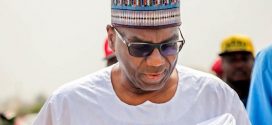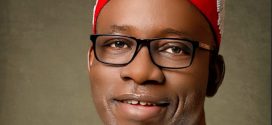ASUU and University Students on my mind:
By: Chimaroke Nnamani MD.
/1
The Nigerian Association of University Teachers was established in 1965 and included the following, Universities of Ibadan, Nigeria, Ahmadu Bello, Ife & Lagos. This NAUT subsequently grew into the Academic Staff Union of Universities that is ASUU.
/2
They rarely took a notable stance on national issues at the time, and on the rare occasions when they did, they issued a public statement and they tend to be conservative and sympathetic to the regime.
/3.
When it became apparent to many members that NAUT was no longer appropriate for the advancement of the university system, ASUU was established.
/4
Asuu was established in 1978, before the end of the oil boom, at which time Nigeria suffered greatly from the failure to fully utilize the oil boom to increase production and the social welfare system.
/5
At the time, intellectual freedom and university autonomy were also being destroyed by the military regime.
Since 1980, funding for higher education and education has been significantly reduced, necessitating a change in the academic unit’s orientation.
/6
The fundamental shift in ASUU’s perspective led to a greater focus on big-picture like national issues and steadfast opposition to the nation’s repressive and anti-democratic practices. Throughout the year 1980, ASUU began to press for academic freedom.
/7
However, when Shehu Shagari was president, ASUU turned the issue of autonomy into a point of contention after six senior members were removed and staff members were fired without a hearing.
/8
Their conflict with Shagari’s government quickly expanded to cover funding, salaries, brain drain, and the viability of the university system in the context of autonomy and academic freedom.
/9
State of the Economy National Conference was organized by ASUU in 1984, and its publication, “How to Save Nigeria” discussed Nigeria’s issues and solutions. But their belief that the government wanted to withdraw from the economy lead them to oppose University privatization.
/10
Notwithstanding, they played a key role in the National University Commission (NUC) receiving the senate’s former authority to determine, regulate, and oversee academic programs.
/11
They also participated in discussions about our national economy, education, and other policies while collaborating with other independent industrial unions like the State Chapter of the Nigeria Labour Congress.
/12
Other ASUU struggles during the 80s and 90s included those against the military government, privatization, the Structural Adjustment Programme (SAP), and, in their accounts, an attempt by the World Bank to seize control of the institution through the use of a $120 million loan.
/13
In a similar vein, the World Bank’s funded $102.4 million Nigeria University Innovation Project (NUSIP) during OBJ’s administration to expand institutional and system management capabilities in 24 federal universities was also opposed by the union.
/14
ASUU was once more banned on August 23rd, 1993, following a failure of negotiations between the federal government and the union on July 20th, 1993. The FG was forced to suspend the prohibition and resume talks with the union, thanks to the support of the
/15
public professional organizations, NANS, and the general public. The negotiations resulted in several agreements between the union and the FG, and they served as the starting point for the union’s subsequent battles to defend higher education and the university system.
/16
This 1993 exercise taught ASUU that they could ransom the government so long as they had the backing of the public and professional organizations.
/17
This prompted ASUU to begin fostering its ties with the civil society when it adopted a proactive stance and demonstrated sympathy with the community in denouncing the death of Ken- Saro-Wiwa.
/18
(In their opinion, it demonstrated that a determined, morally upright, and organized populace can overthrow a military regime.)
ASUU has gone on strikes 16 times since 1999 in response to their demand after making this discovery of holding the government to ransom.
/19
ASUU was on strike for five months in 1999, three months in 2001, two weeks in 2002, six months in 2003, two weeks in 2005, three days in 2006, three months in 2007, one week in 2008, four months in 2009, five months in 2010, 59 days in 2011, five months in 2013,
/20
one month in 2017, three months in 2018, nine months in 2020, and now since February 14, 2022. In comparison to the number of students enrolled in our higher education institutions, the government budget indeed does to keep up with the enrollment exponential growth.
/21
Nigeria also failed to meet the (UNESCO) requirement for the national budget for education, which is 26% of the total. Only 10% of the total national budget is spent on education nowadays.
/22
But one would expect ASUU, a union that has been concerned about the Nigerian debt service crisis since 1984, to comprehend the dire circumstances in which our country has found itself.
/23
Our debt burden, which is determined by the ratio of our revenue to debt, is critical, and any additional rise in the budget deficit would be catastrophic for our nation.
/24
Asuu should take a page out of similar trade unions around the world like the Austrian National Tertiary Education Union (NTEU) and study how they handle similar issues to prevent a strike that affects the entire nation.
/25
The future of millions of young Nigerians is in jeopardy due to these ongoing strikes. ASUU continues to assert that it is fighting for tertiary education in Nigeria and by extension, for Nigerian students.
Chimaroke Nnamani MD
 Hottestgistnaija.com
Hottestgistnaija.com




